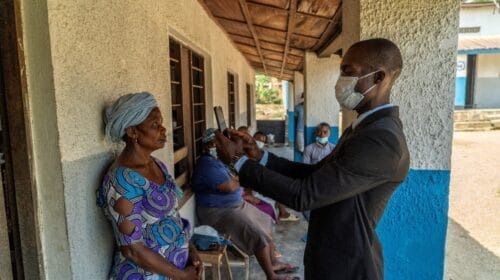Diabetes increasing COVID risks, showing need to strengthen health systems
“Many efforts have been made to prevent and treat diabetes”, but the disease continues to rise rapidly in low and middle income countries, those “least well-equipped with the diagnostics, medicines, and knowledge to provide life-saving treatment”, said Secretary-General António Guterres.
A gloomy picture
Globally, some 422 million adults are living with diabetes (latest figures from 2014), according to the World Health Organization (WHO), compared to around 108 million in 1980 – rising from 4.7 to 8.5 per cent in the adult population.
This reflects an increase in associated risk factors, such as being overweight or obese.
Diabetes is a major cause of blindness, kidney failure, heart attack, stroke and lower limb amputation, and the COVID-19 pandemic has brought additional pain to those requiring regular care and treatment who struggle to access therapies for their condition.
Hope ahead
A healthy diet, physical activity and not smoking can prevent or delay Type 2 diabetes, formerly called non-insulin-dependent or adult-onset diabetes, the UN said.
Moreover, the disease can be treated and its consequences avoided or delayed with medication, regular screening and treatment for complications.
Next year, WHO is launching the Global Diabetes Compact, “a new initiative that will bring structure and coherence to our complementary efforts to reduce the burden of diabetes”, informed Mr. Guterres.
“Let us work together to make sure that, through this ambitious and much-needed collaboration, we will soon be talking about the decline in diabetes as a public health problem”.
Hailing nurses
The theme for World Diabetes Day 2020 is “The Nurse and Diabetes”, which aims to raise awareness around the crucial role of these health care professionals in supporting people living with diabetes.
Nurses, who currently account for over half of the global health workforce, also help people living with a wide range of health concerns.
People living with diabetes face a number of challenges, and education is vital to equip nurses with the skills to support them.
“As we strive to overcome the pandemic, let us do our utmost to ensure Universal Health Coverage, strengthen health systems and advance good health and resilience for all”, the UN chief said.





